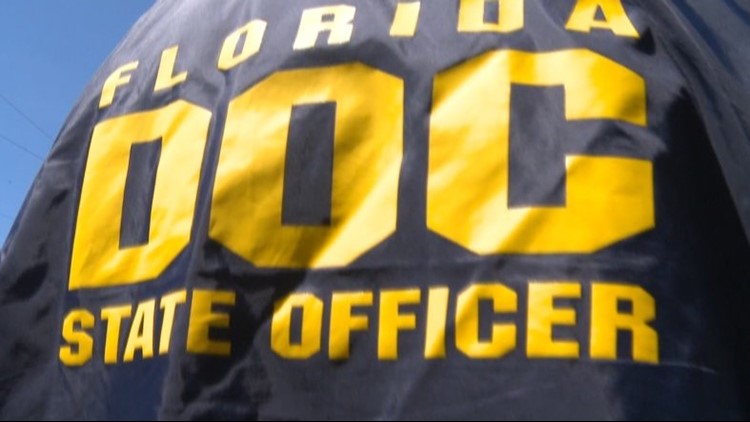TAMPA, Florida - When felons get out of prison, communities benefit when they become productive civilians. But society pays a price when felons fall back into crime, get re-arrested, get re-prosecuted, and re-sentenced.
A number of recent cuts to Florida felon re-entry programs, designed to reduce recidivism, have amplified critics of the state's commitment to lowering its felon recidivism rate. 10Investigates has also been reporting about years of penny-pinching at the Department of Corrections, which have led to numerous problems both inside prisons and in the community, where probation officers are stretched thin trying to monitor felons who have served their time in prison.
"I don't get it," said former inmate Ron Baker, who broke his personal cycle of recidivism when he got into a substance abuse program to break his addictions. "The DOC's own mission statement is to provide programs sufficient enough for each inmate to have the opportunity to rehabilitate. By eliminating programs, they're undermining their own mission statement."
Baker now runs Prisoner Connections LLC, a paralegal business aimed at helping felons with legal services. He connected with 10Investigates following a series of reports about the state's elimination of substance abuse, mental health, and other re-entry programs for felons about to exit prison.
"Every year, 30,000 inmates are released (from Florida prisons)," Baker said. "It's inevitable they're going to be your neighbor."
A report from non-partisan watchdog Florida Tax Watch says better programs for released felons could save the state up to $280 million a year - or more, if the reduction in incarceration populations allowed the state to close prisons.
"I toured a (prison) facility a few months ago," said State Sen. Jeff Brandes, R-St. Petersburg. "It had 1,100 inmates and one teacher. So largely, we're warehousing. We're not correcting."
Brandes has fought many of his fellow Republicans in an attempt to overhaul the entire criminal justice system in Florida.
"There's a lot of work that needs to be done, but we're raising the issue. This is an issue that hasn't been raised in this state in decades."
State spends, private corporations profit
While taxpayers and society pay when felons re-offend, private prison corporations and other businesses that profit off inmates stand to benefit.
Since he hit the campaign trail in 2010, Gov. Rick Scott has steadfastly stood behind a shift of prison populations from state-run institutions to private prisons. The process has not always been a smooth one, with deaths, scandals, and adverse court rulings against the state making headlines.
But Scott has said privatization and outsourcing has saved the state money.
In turn, several of the companies that benefit have sent campaign contributions back to the Governor, the state parties, and other leaders connected to the state's pursestrings.
Under Scott, the DOC has also pushed controversial policies, such as limiting family visits in prison to every-other week, instead of every week, as it had been. The agency said the policy was to address a contraband problem, but DOC statistics show only 2.5% of the contraband in prison comes from families; the overwhelming majority comes from staff, who are often underpaid and easily-convinced to smuggle in contraband.
Instead, the restricted visitation policy will adversely impact families with a loved one in prison, and push many to a new video-conference option, offered for a fee by private corporation JPay.
The governor also has close ties to private prison provider GEO Group, a regular donor whose CEO hosted a fundraiser for Scott in 2014.
And prisoner health care provider Centurian, one of the industry's biggest political givers, got a $55 million bump in its contract this year.
Governor Scott told 10Investigates this week he stands by the work his department has done to help correct felons' behavior, but has never explained why he did not use executive power to save $28 million worth of important re-entry programs last month when they were cut to help the DOC meet its budget.
Find 10Investigates' Noah Pransky on Facebook or follow his updates on Twitter. Send your story tips confidentially to npransky@wtsp.com.



